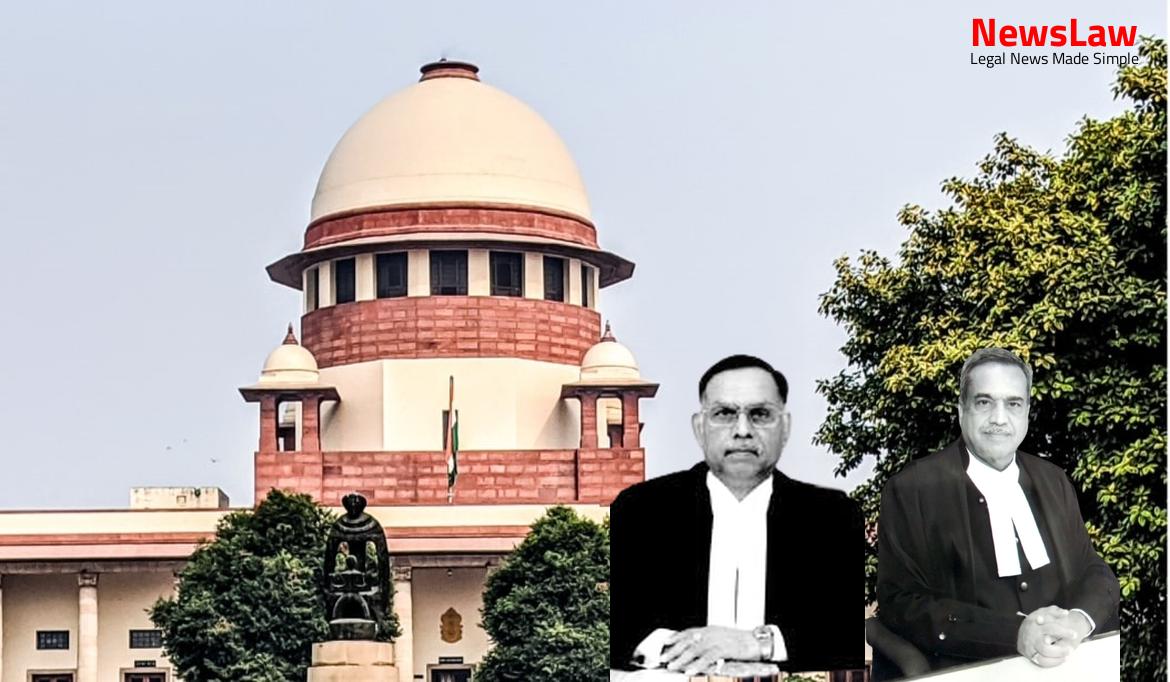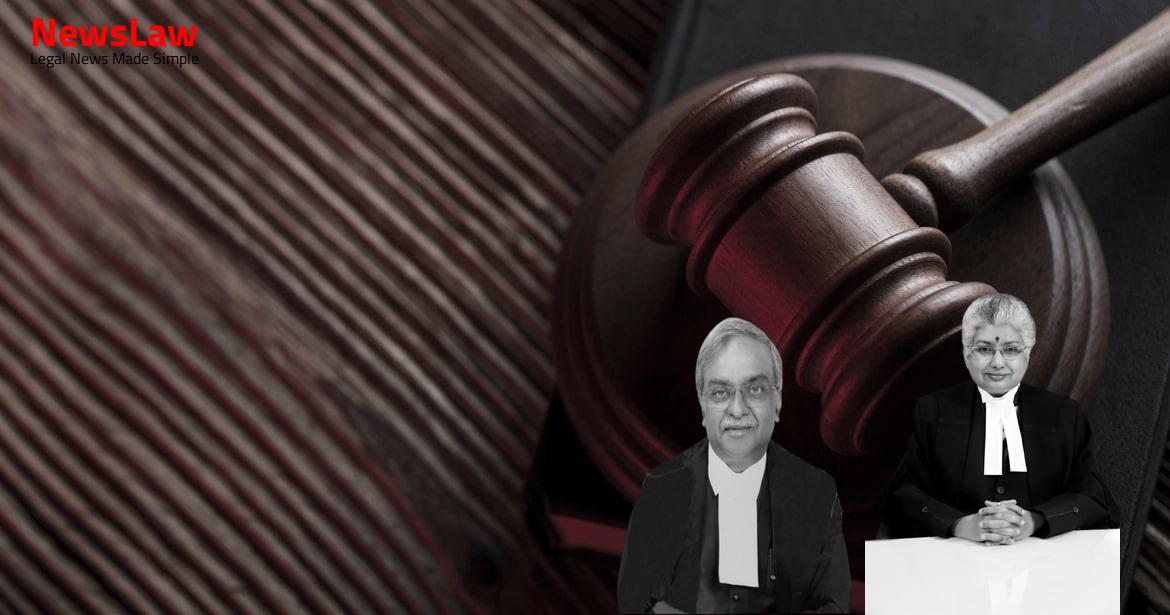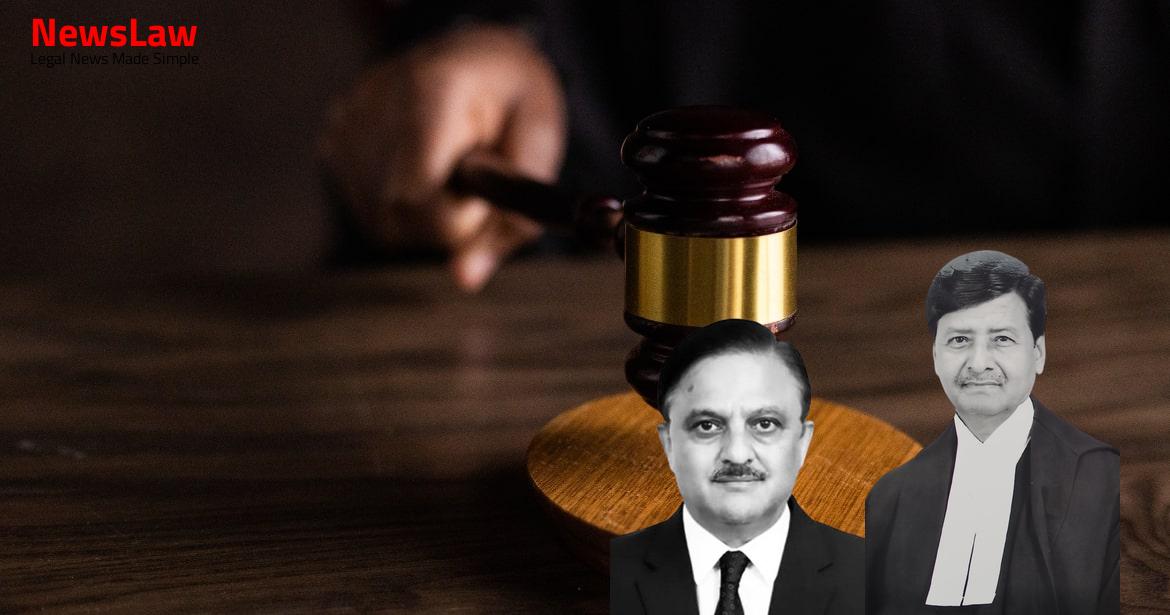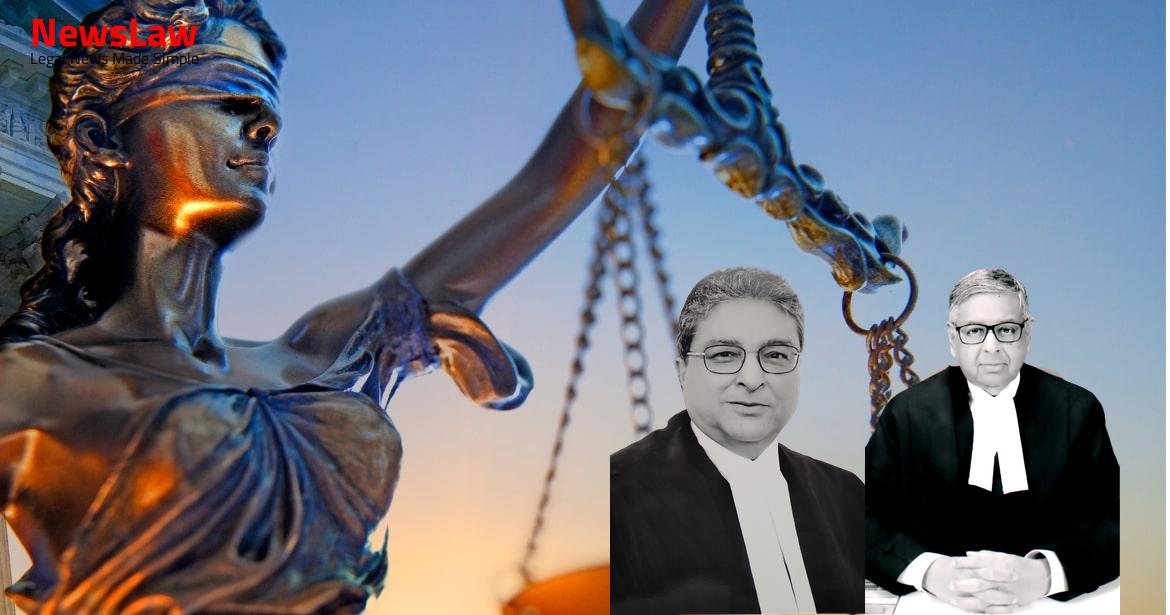The case delves into the legal analysis conducted by the court regarding the interpretation of maintenance rights for unmarried daughters under Hindu family law. The court’s discussion on the intersection of Section 125 Cr.P.C. and Section 20 of the Hindu Adoptions and Maintenance Act, 1956, provides valuable insights into the scope of maintenance entitlements for unmarried daughters. This summary focuses on the court’s interpretation and application of the relevant legal provisions to determine the extent of maintenance claims for unmarried daughters, particularly after they attain majority.
Facts
- Application filed under Section 125 Cr.P.C. on 17.10.2002 by the applicants including the appellant as applicant No.4 against Parkash, father of the appellant.
- Judicial Magistrate allowed the application for maintenance till the appellant attains majority on 26.04.2005.
- Appellant filed an appeal challenging the High Court’s order dated 16.08.2018.
- High Court dismissed the Section 482 Cr.P.C. application filed by the appellant to set aside the Judicial Magistrate’s order dated 16.02.2011 and Additional Sessions Judge’s order dated 17.02.2014.
- Appellant’s date of birth is 26.04.1987, making her a minor at the time of application.
- Judicial Magistrate granted maintenance to the appellant until she attains majority.
- The Judicial Magistrate dismissed the application under Section 125 Cr.P.C. for applicant Nos. 1, 2, and 3 but allowed it for applicant No. 4 (appellant) until she attains majority.
- The Additional Sessions Judge modified the order for maintenance for Abhilasha, stating that she is entitled to maintenance until she reaches majority and not thereafter, as she does not suffer from any physical or mental abnormality.
- The revisionist No.4 (appellant) was also found not to be suffering from any physical, mental abnormality or injury, therefore entitled to maintenance only until she reaches majority.
- The provision of Section 125 Cr.P.C. allows children who have attained majority to receive maintenance if they are unable to maintain themselves due to physical or mental abnormality or injury.
Also Read: Transfer of Writ Petitions for Chartered Accountants’ Tax Audit Guidelines
Issue
- The two questions arising for consideration in this appeal are:
- Whether the appellant, who has attained majority and is still unmarried, can claim maintenance from her father under Section 125 Cr.P.C. even if she does not have any physical or mental abnormality/injury.
- Whether the orders passed by the Judicial Magistrate and the Revisional Court limiting the appellant’s maintenance claim till she attains majority on 26.04.2005 should be set aside, and whether the respondent should continue to provide maintenance even after 26.04.2005 until the appellant remains unmarried.
- Both questions are interconnected and will be considered together.
Also Read: Analyzing Interference with Acquittal in Legal Conviction Case
Arguments
- Learned senior counsel contends that High Court erred in dismissing the application filed under Section 482 Cr.P.C. of the appellant based on wrong premise regarding the appellant’s entitlement to maintenance.
- Ms. Makhija relies on Section 20 of the Hindu Adoptions & Maintenance Act, 1956, stating that the obligation to maintain an unmarried daughter extends until she is married.
- Reference is made to the judgment in Jagdish Jugtawat Vs. Manju Lata and Others, (2002) 5 SCC 422 to support the argument.
- Specific details about the plot of land purchased in the appellant’s name and its agreement for sale are provided in the counter affidavit and rejoinder affidavit.
- It is accepted that an unmarried Hindu daughter has the right to claim maintenance from her father until marriage under Section 20(3) of the Act, 1956 provided she proves her inability to maintain herself.
- Ms. Makhija submits that the appellant, being unemployed, is entitled to claim maintenance from her father.
- The Revisional Court found that the appellant is not suffering from any physical or mental abnormality or injury which would make her unable to maintain herself.
- High Court dismissed the appellant’s application under Section 482 Cr.P.C. as there was no grounds to interfere with the orders of the Judicial Magistrate and Revisional Court.
- The entitlement to claim maintenance by a daughter who has attained majority is limited to cases where she is unable to maintain herself due to physical or mental abnormality or injury.
- The appellant’s claim for maintenance was rejected because she was found to not have any physical or mental abnormality or injury.
- The Hindu Adoptions and Maintenance Act, 1956, specifically provides for maintenance of children and aged parents, extending to cases where the daughter is unmarried and unable to maintain herself.
Also Read: Judicial Review on Sentence and Compensation in Criminal Case
Analysis
- The purpose of Section 125 Cr.P.C. is to provide immediate relief in summary proceedings.
- Section 20 of the Hindu Adoptions and Maintenance Act, 1956 recognizes the right of maintenance for unmarried daughters who are unable to maintain themselves.
- The jurisdiction under Section 125 Cr.P.C. and Section 20 of the Act, 1956 can stand together as they serve different purposes.
- An unmarried daughter can claim maintenance under personal law as granted by Section 20 of the Act, 1956.
- The court upheld the order passed by the Family Court based on a combined reading of Section 125 Cr.P.C. and Section 20(3) of the Hindu Adoptions and Maintenance Act.
- Maintenance can be claimed by a minor daughter until she attains majority under Section 125 Cr.P.C., but the claim can extend further under Section 20 of the Act, 1956 if she is unable to maintain herself.
- Multiplicity of proceedings was avoided by maintaining the order granting maintenance to the unmarried daughter.
- Section 488 of the Code of Criminal Procedure, 1898, provided for maintenance of a wife or child by a person neglecting or refusing to maintain them.
- The provision aimed to prevent negligence towards women and children and served a social purpose.
- Summary proceedings were allowed under Section 488 to provide urgent relief to deserted wives or helpless children.
- The Act emphasized the responsibility of a Hindu father to maintain his unmarried daughters who are unable to support themselves.
- The definition of maintenance under the Act, 1956, includes provisions for food, clothing, residence, education, and medical treatment.
- Muslim Law recognizes the obligation of the father to maintain his daughters until they are married.
- Section 488 of the CrPC provides a summary remedy for recovery of maintenance for wives, irrespective of religion.
- Unmarried daughters are entitled to maintenance from their father until they are married, even if they have attained majority.
- Family Courts have jurisdiction over maintenance cases for wives, children, and parents under Chapter IX of the CrPC.
- Section 20(3) of the Hindu Adoptions and Maintenance Act, 1956 recognizes the right of a minor girl to claim maintenance from her father after attaining majority.
- In areas without Family Courts, maintenance proceedings under Section 125 Cr.P.C. are before the Magistrate of the First Class.
- The Family Court can grant maintenance to unmarried daughters even after they attain majority to avoid multiple proceedings, as per the judgment in Jagdish Jugtawat case.
- Appellant is given liberty to claim maintenance against her father under Section 20(3) of the Act, 1956.
- The appeal is dismissed with the above liberty granted to the appellant.
Case Title: ABHILASHA Vs. PARKASH (2020 INSC 546)
Case Number: Crl.A. No.-000615-000615 / 2020



